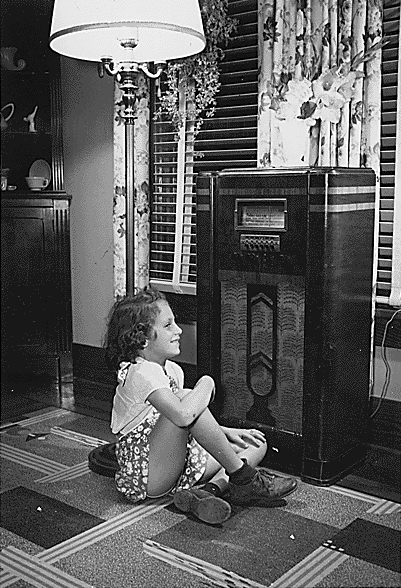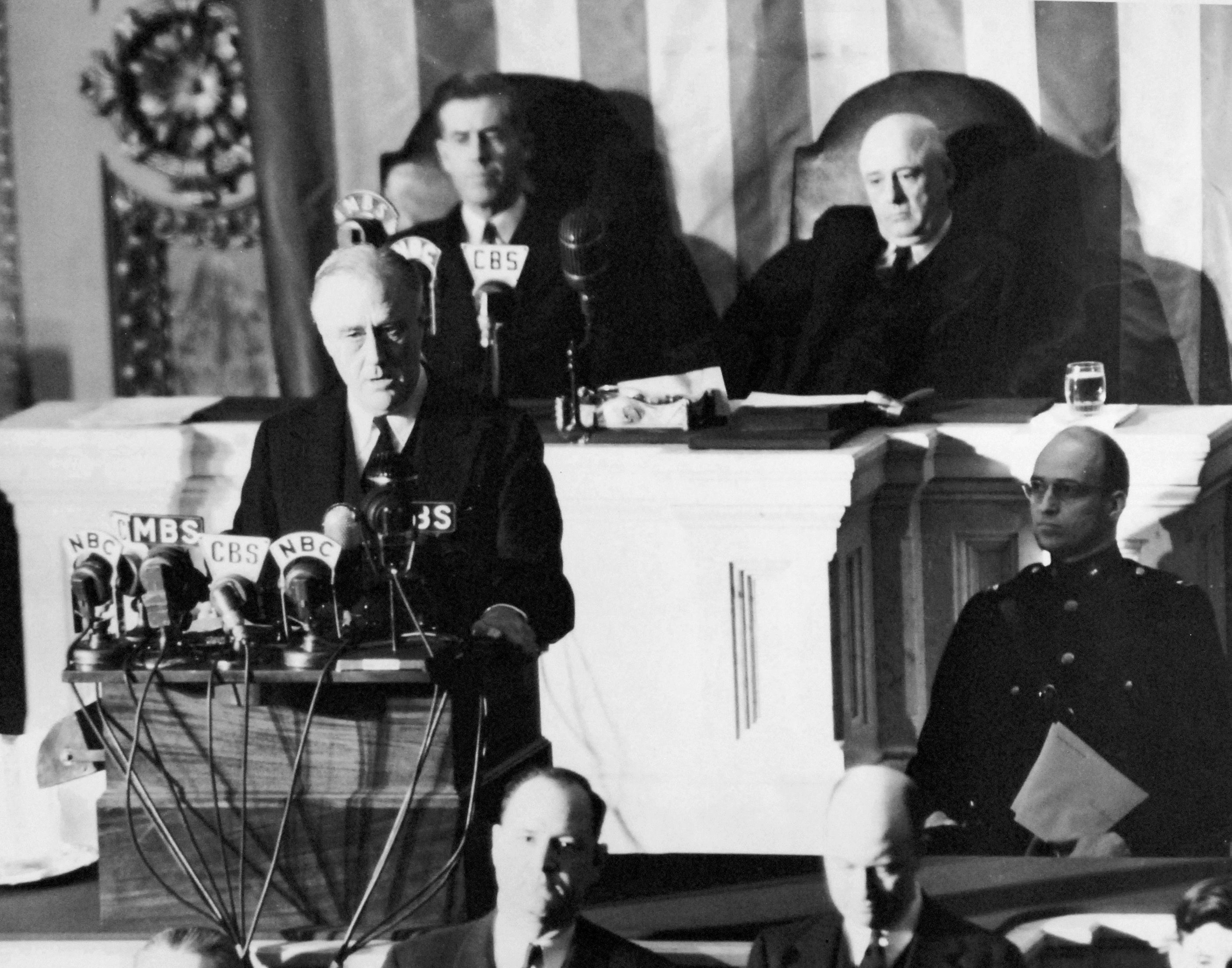"Sound itself attracts -- ask any eavesdropper. Sound is the first stirring of the infant. He hears sound -- he puts them together -- they cohere. Sounds have a romance. The sound of a cricket at night to establish a mood in a radio drama: a very simple effect. The sound of thunder. The sound of rain. There is no sound on the moon because it takes air to support it; the vibrations of air create the sound. And radio was a medium which employed that magic." (Norman Corwin)

An American girl listening to the radio circa 1937 courtesy
Long before televisions filled American parlours, the radio was the centre piece for the living room. For fifty years, radio was the dominant medium. As CBS radio director and producer Norman Corwin explained: "There was a kind of romance to radio that has not been extended by its successor medium, television. The listener was a blind audience, and he collaborated with what he heard. He could construct the sets, and dress the cast in his own mind and fill in the gaps. Radio was to a marked degree the medium for poetry and heightened language." (http://www.pbs.org/kenburns/empire/radio/)
Dylan Thomas' reciting his poetry circa 1940's or 1950's courtesy http://www.bbc.co.uk/programmes/profiles/1m22kf8TT3jJqjyww5LPWpD/on-radio
Ken Burns points out that radio had "a way of bringing people together -- through language, politics, music, news, literature, drama and humour". Whether it was Franklin D. Roosevelt's fire side chats during the Great Depression, or Bing Crosby's Radio Hour of the 1940's or CBC's Hockey Night in Canada (north of the border), much of the nation had its ears glued to that cathedral like contraption, hanging on every word, united in a common interest. Here are some monumental events broadcast live via radio:
- wireless distress signals save many lives on the sinking Titanic in 1912
- Charles Lindbergh's return from Paris after his trans-Atlantic flight in 1927
- Orson Welles' War of the Worlds sci-fi broadcast convinces many Americans that New Jersey is truly being invaded by aliens in 1938
- President Franklin D. Roosevelt delivers his speech after Pearl Harbor attack in 1941

Franklin D. Roosevelt's "A Day Which Will Live in Infamy" speech circa December 8, 1941 courtesy https://en.wikipedia.org/wiki/Infamy_Speech.
In his documentary, Empire of the Air: The Men Who Made Radio, Ken Burns focusses on three pioneers in the field of radio: Lee DeForest, Edwin Armstrong and David Sarnoff. Lee DeForest, a clergyman's flamboyant son, invented the audion tube and formed the wireless telegraph company in 1902. Edwin Armstrong, a brilliant inventor, pioneered FM technology. David Sarnoff, a hard driving Russian immigrant, created the most powerful communications company on earth.
David Sarnoff, the Father of Broadcasting, circa 1930's
"By 1950, there were 90 million radio sets in American homes. There were also 10 million examples of a new medium: "As for the picture box that kicked the radio out of the parlor (and into such remote niches as the basement, garage, shower, car, jogging path, virtually everywhere but the living room), Corwin says 'television has a far greater hold on the person who wants to sit and have things come to him pre-digested...There were no couch-potatoes in radio." (http://www.pbs.org/kenburns/empire/radio/)
For a clip from Ken Burns' documentary, Empire of the Air; The Men Who Made Radio, visit http://www.pbs.org/kenburns/empire/film/.
For more information, read Tom Lewis' book Empire of the Air: The Men Who Made Radio (1991).
No comments:
Post a Comment